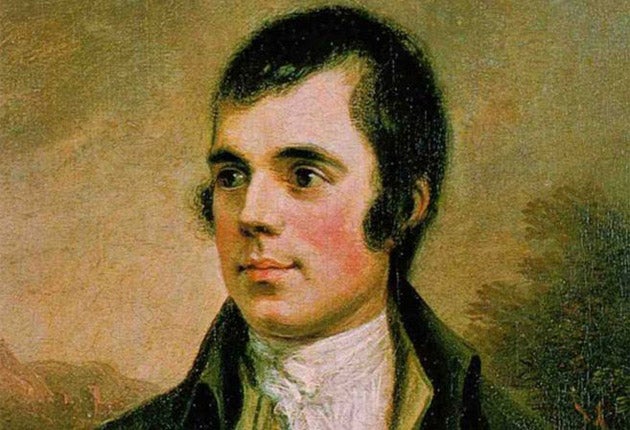The Blagger's Guide To...Burns Night
Haggis, whisky, poetry – what's not to like?

Your support helps us to tell the story
From reproductive rights to climate change to Big Tech, The Independent is on the ground when the story is developing. Whether it's investigating the financials of Elon Musk's pro-Trump PAC or producing our latest documentary, 'The A Word', which shines a light on the American women fighting for reproductive rights, we know how important it is to parse out the facts from the messaging.
At such a critical moment in US history, we need reporters on the ground. Your donation allows us to keep sending journalists to speak to both sides of the story.
The Independent is trusted by Americans across the entire political spectrum. And unlike many other quality news outlets, we choose not to lock Americans out of our reporting and analysis with paywalls. We believe quality journalism should be available to everyone, paid for by those who can afford it.
Your support makes all the difference.*Burns Night, which celebrates the birth in 1759 of Scotland's favourite poet, is celebrated on Tuesday.
Technically, it should involve more than just drinking whisky. Try reciting at least the first verse of "Address to a Haggis" before plunging in the skean dhu. Into the haggis, not yourself; it's not that bad.
*"Fair fa' your honest, sonsie face, Great chieftain o' the pudding-race! Aboon them a' ye tak your place, Painch, tripe, or thairm: Weel are ye wordy o' a grace As lang's my arm ..."
*Robert Burns was voted the Greatest Ever Scot by TV viewers in a 2009 poll. His song "Is there for Honest Poverty" was chosen as the anthem to open the new Scottish Parliament.
*"Mair nonsense has been uttered in his name/ Than in ony's barrin liberty and Christ", wrote the Scottish nationalist Communist poet Hugh MacDiarmid in his 1926 poem "A Drunk Man Looks at the Thistle", a diatribe against the cult of Burns.
*Burns' songs have been recorded by, among others: Eddie Reader; Andy Stewart; Ewan MacColl; Jean Redpath; and Anne Lorne Gillies. This last singer is also a broadcaster, academic, writer and SNP member, who wrote the script for the drama Aig an taigh, for Scottish Television's Speaking our Language programme for learners of Gaelic. Gillies' version of Burns's "Ae Fond Kiss" was chosen as his first song by the Scottish First Minister Alex Salmond on last week's Desert Island Discs.
*Scotland's national bard was born in Ayrshire in an "auld clay biggin" that is now known as Burns Cottage. An official Burns museum opens on the site this weekend. The Robert Burns Birthplace Museum is in the village of Alloway on the outskirts of the town of Ayr. Entry is via Burns Cottage (Greenfield Avenue) and at the main museum building (in Murdoch's Lone).
*The museum traces the life of the Ayrshire ploughman from his birthplace via Brig o' Doon to Burns Monument. Among the exhibits is Burns's writing set, containing goose-quill nibs, a sharpening knife and a tiny inkwell. Burns carried this writing set with him as he travelled around the countryside, believing, in the words of the writer Thomas Gray, that "a word fix'd on the spot is worth a cart-load of recollection".
*The new Scottish Makar, or national poet, was announced on Wednesday as Liz Lochhead (below). She replaces Edwin Morgan, who died last August. Lochhead's first official engagement was to open the Burns museum on Friday. "I accept [the position] on behalf of poetry itself," she said, "in grateful recognition of the truth that poetry... matters deeply to ordinary Scottish people."
*From the age of 30 until his death seven years later, Robert Burns was an exciseman. Taking taxes on goods such as malted grain, alcohol, paper, and soap was unpopular, so the job was a risky business. For this reason Burns carried a pair of pistols, personalised with his initials, which are also displayed at the museum.
*Robert Burns had a notoriously bad singing voice. Which was prescient, because so do most of the people who launch into the first verse of "Auld Lang Syne" each Hogmanay, usually giving into drunken shouting at about the line: "And never brought to mind".
Join our commenting forum
Join thought-provoking conversations, follow other Independent readers and see their replies
0Comments